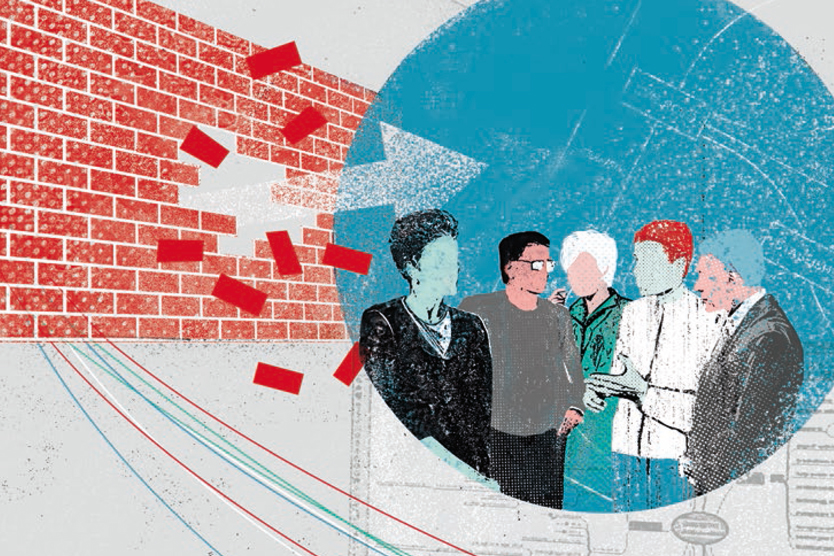The digital transformation in full swing all round the world. The technological progress is rapid and is changing the way we communicate, work, learn and live. It offers tremendous potential for improving people’s quality of life, for doing business more efficiently, and for creating revolutionary business models.
Forecasts indicate the potential dimensions: according to information from the European Commission, a Digital Single Market could contribute 415 billion euros per year to the economic performance of the European Union and create hundreds of thousands of new jobs. For example, the market volume of the Internet of Things is estimated to be some 1.9 billion euros in 2020.
Digitalising industry will open up potential additional cumulative added value of €425 billion in Germany alone. Projections put productivity gains at up to 30%, annual efficiency gains at 3.3% and cost reductions at 2.6% annually. Improved cooperation between companies and start-ups in Germany could open up growth potential totalling 100 billion euros up to 2020.
New technologies are helping people to organise their lives, making them more independent, enabling them to live more healthily and to share products such as cars with each other. Every individual can communicate whenever and with whoever he wishes, obtain information quickly and in depth and actively participate in society. As a consumer, the individual has broad choices, tailor-made products and services. As so-called “prosumer” he can assume a role as consumer and producer of services and products at one and the same time.
At the same time, however, digitalisation brings new insecurities: people are worried about the loss of sovereignty over their private data, see the lack of transparency about the truth of news and information as well as the correctness of prices and are increasingly experiencing polarising and extreme public discussions in digital channels. Probably the greatest fear of many people is that digitalisation will make their jobs superfluous.
Industry is also faced with a broad field of new possibilities, with companies having a lot of opportunities to try out new things and to penetrate new growth areas. However, the danger of failing also intensifies as competitors become more flexible, faster and better: digitalisation is not only translated into the challenge of achieving greater efficiency in established markets. It is also becoming increasingly important for businesses to become even faster in developing new digitalised products and business models. Many established providers feel that they are not fighting new competitors on a level playing field because in the new digital economy data wealth and direct access to customers will be more important than a perfect product in future.
After the internet which brings people together, we are increasingly seeing the internet which connects machines. In the Internet of Things, Germany, with its strong industrial sector and industry-related services, has the opportunity to position itself at the forefront of the next phase of digitalisation. Basically, America has the internet, we have the things.
Germany and Europe need to find their own way forward. We need digitalisation “Made in Europe”, which makes maximum use of the economic opportunities and potential and overcomes the risks. It follows the strategy that competition requires order: as much digital competition as possible but at the same time (state) support, where necessary, and a regulatory framework to ensure fairness, legal certainty and participation possibilities for all.
![To homepage Logo [EN]de.digital](https://www.de.digital/SiteGlobals/DIGITAL/StyleBundles/Bilder/sublogo_de.png?__blob=normal&v=1)

